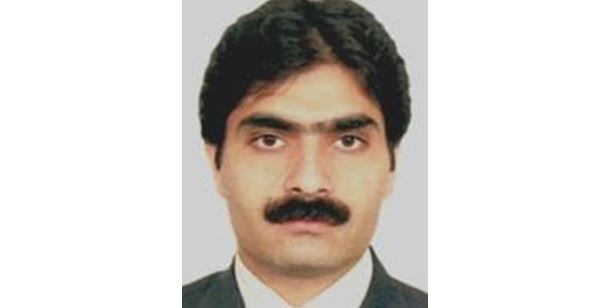Faridullah Farid
“If seeking azadi (liberation) is a crime, then I am willing to accept this crime and its consequences,” Yasin Malik, the brave Kashmiri leader, said before an Indian court judge while rejecting terrorism, illegal fund raising, criminal conspiracy and sedition charges brought against him by the National Investigation Agency (NIA) and stressing that all these charges are concocted, fabricated and politically motivated.
Though Yasin Malik protested all charges against him by stating that he was a “freedom fighter,” his conviction by an Indian court in a one-sided case following a “sham trial” in a clearly dubious and motivated case carrying a maximum sentence of death or life imprisonment is in violation of the Universal Declaration of Human Rights (UDHR) and the International Covenant on Civil and Political Rights (ICCPR).
Yasin Malik’s inhumane detention in the infamous Tihar jail, his sham trial in fabricated crimes, erroneous conviction and malfeasance also represent attempts by the Indian government to defile the legitimate fight of Kashmiris for their right to self-determination as ‘terrorism.’ All of this demonstrated India’s record of human rights violations and usurpation of Kashmiris’ fundamental rights.
The renewed zeal with which prosecutions against Kashmiri leaders are being pursued exposes India’s malicious plans to erode IIOJK’s unique political and cultural identity (Indian illegally occupied Jammu and Kashmir). The conviction of Yasin Malik, as well as the “motivated cases” brought against other Kashmiri leaders, demonstrated the wicked Indian drive to deprive Kashmiris of legitimate leadership.
In 1989, an armed revolt in IIOJK erupted, with combatants demanding independence for Kashmir or a union with Pakistan. In 1994, the Jammu and Kashmir Liberation Front, commanded by Yasin Malik, ended its military insurgency in the disputed region. In 2019, the Indian government arrested Yasin Malik and banned the JKLF, the same year that New Delhi invalidated Articles 370 and 35A, depriving the IIOJK of its special status and enforcing the valley’s long-standing curfew. Despite his chronic illnesses and deteriorating health, the Indian government imprisoned Yasin Malik in the infamous ‘Tihar Jail’ and subjected him to severe punishment.
India has used such techniques against Kashmiri leadership in the past, but the desire for freedom has never been crushed because the valiant Kashmiris have always taken pride in standing up for their intrinsic right to freedom and self-determination.
The Indian court’s ruling against Yasin Malik has sparked massive outrage and protests by Kashmiris around the world, which are expected to spread to all major capitals. The Kashmiri diaspora in the United Kingdom opposed Yasin Malik’s conviction, stating that the struggle for liberation against Indian occupation is morally correct, lawful, and authentic, as backed by international law and UN resolutions.
Fahim Kiyani, President of ‘Tehreek-e-Kashmir UK,’ while addressing a protest demonstration in Birmingham to express solidarity with Yasin Malik and all political prisoners said that “The court ruling against Yasin Malik is a vindication of our stand that the Indian judiciary is part of India’s immoral military regime that illegally occupies Jammu and Kashmir. IIOJK was never a part of India and never will be, therefore these trials are a slap in the face of India’s judiciary, military, and civil apparatus, as well as its civil society.”
In this hour of need, when the Indian government and judiciary are adamant on convicting and sentencing a true leader and genuine representative of the Kashmiri people, Pakistan stood firm and not only condemned Yasin Malik’s conviction in the “strongest possible terms,” but also issued a demarche to the Indian charge d’affaires conveying Pakistan’s grave concern over the framing of fabricated charges against Malik and other Kashmiri leaders to suppress their voices.
Though India accuses Pakistan of equipping and training Kashmiri freedom fighters to combat Indian forces, this claim is unfounded because Pakistan only offers Kashmiri people with political, moral, and diplomatic support. After the internationalisation of the Kashmir conflict, it is now common knowledge around the world that the struggle for self-determination in IIOJK is indigenous and unaffected by the Indian government’s draconian strong-arm methods. The statements and determinations of Kashmiri leaders urging the international community to intervene immediately in India to save the international system, which is being flagrantly violated by India, show Kashmiris’ firm resolve that nothing and no power can change their minds, and they are determined to stand up and push India out of their homeland (IIOJK).
If an Indian court judge announces Yasin Malik’s punishment on May 25, it will be the final nail in India’s coffin. India must listen to the legitimate voices of Kashmiri leaders, Pakistan, and international human rights organisations to stop victimising authentic representatives of the Kashmiri people via inhumane detentions and fabricated charges.
It is high time for the world community to convince India to remove all false charges against Yasin Malik, assure his safety and well-being, and give him with full legal protection and the right to a fair trial. Furthermore, the international community must press India to release all political prisoners held on spurious charges, end human rights violations in IIOJK, lift the brutal military siege, and allow Kashmiris to exercise their right to self-determination in accordance with their wishes and relevant UN resolutions.
The Author is Media Scholar and Freelance journalist

















